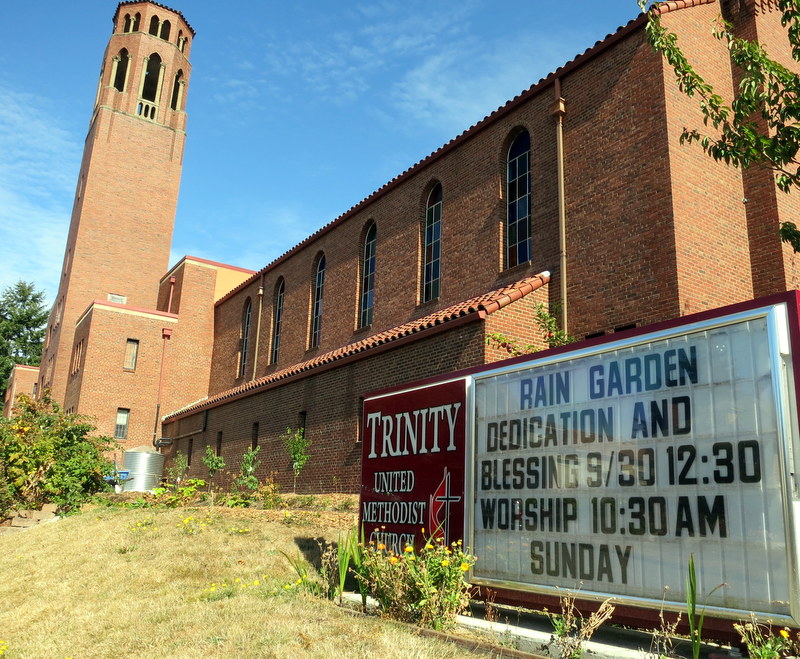Seattle has elevated rain gardens to a higher calling with an announcement I recently noticed on the reader board for the Trinity United Methodist Church. The Ballard neighborhood church not only has turned to a green solution for its polluted runoff salvation, but it has officially “blessed” its stormwater treatment system.
And holy moly, this is a rain garden worth blessing. A story from Ballard KOMO News reports that the installation at the church is Seattle’s largest non-residential rain garden, based on how much roof area the garden will treat.
Trinity reportedly will handle rain from a 5,000 square-foot roof, while the largest residential rain garden apparently treats runoff from a 2,700 square-foot roof, the article explains, though I have to wonder about other green developments — the Bullitt Foundation building and the Bertschi School come to mind. Regardless, it has to be one of the biggest rain gardens in the city. The garden was built with support from Seattle’s RainWise program, which works with private property owners to get more rain gardens and cisterns installed in areas that have problems with sewage and stormwater spills. It was designed by Back To Nature Design.
Why is a church installing a green system for treating polluted stormwater? Ballard KOMO News put the question to Trinity’s pastor.
“Our Judeo-Christian tradition teaches us to be caretakers of the earth and in Seattle that means caring for our streams and Puget Sound,” said Pastor Kathleen Weber. “Installing a rain garden is the perfect reminder of our commitment to environmental justice and sustainability.”


Comments are closed.